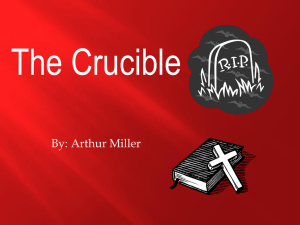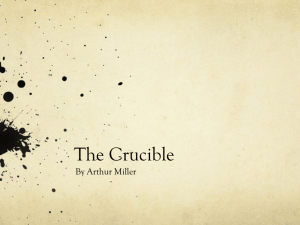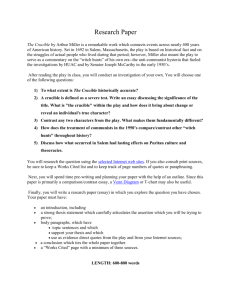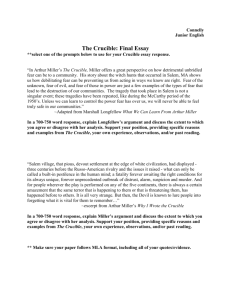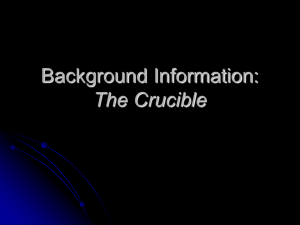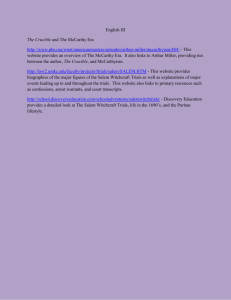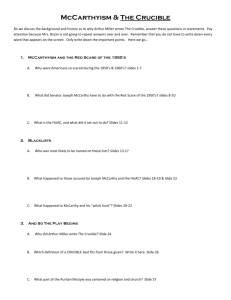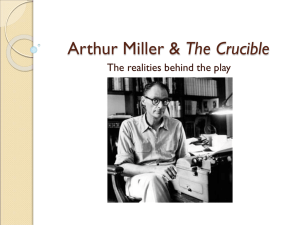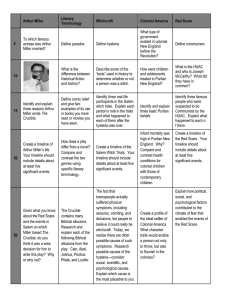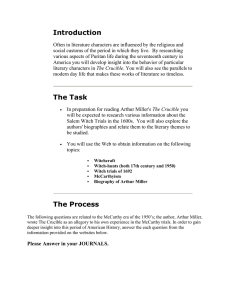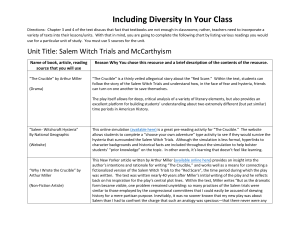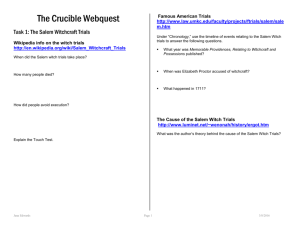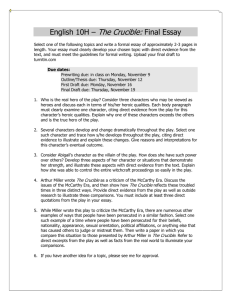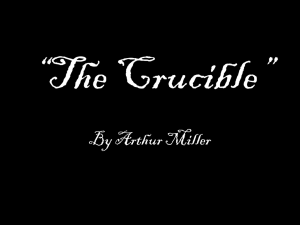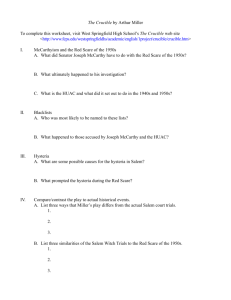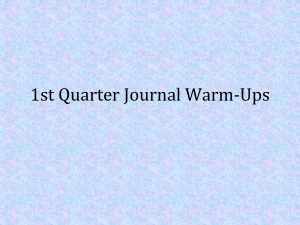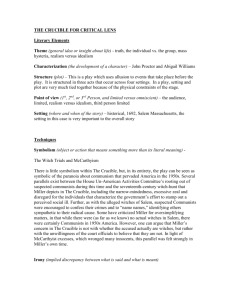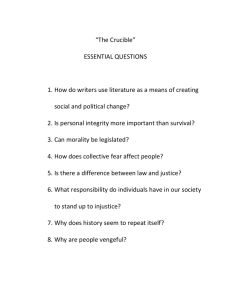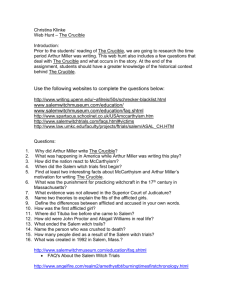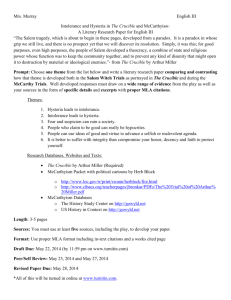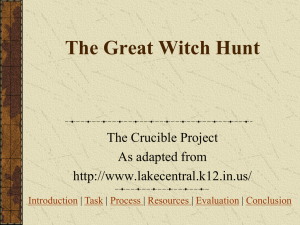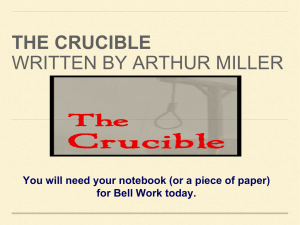File
advertisement
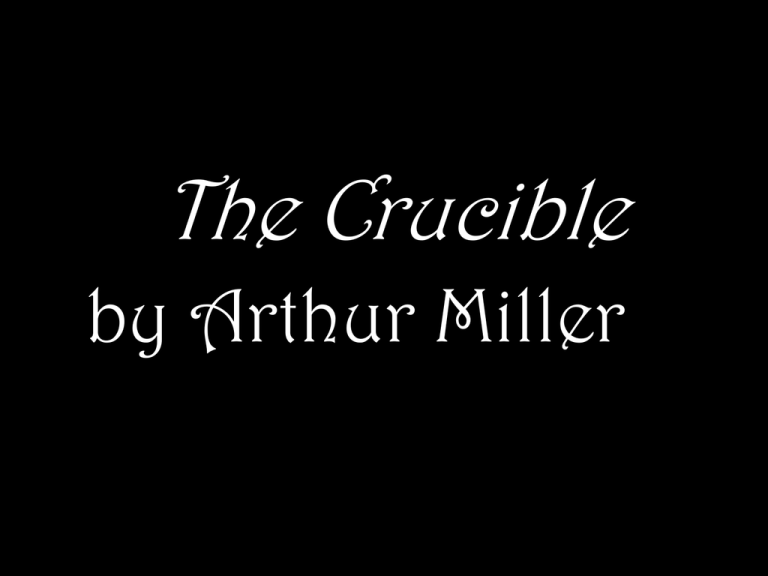
The Crucible by Arthur Miller cru·ci·ble (krs-bl) n. A severe test, as of patience or belief; a trial. Historical Context • Early in the year 1692, in the small Massachusetts village of Salem, a collection of girls fell ill, falling victim to hallucinations and seizures. • In extremely religious Puritan New England, frightening or surprising occurrences were often attributed to the devil or his cohorts. • Old grudges and jealousies spilled out into the open, fueling the atmosphere of hysteria. The Massachusetts government and judicial system, heavily influenced by religion, rolled into action… • Within a few weeks, dozens of people were in jail on charges of witchcraft. By the time the fever had run its course, in late August 1692, nineteen people (and two dogs) had been convicted and hanged for witchcraft. Arthur Miller and Joseph McCarthy • Drawing on research on the witch trials he had conducted while an undergraduate, Arthur Miller composed The Crucible in the early 1950s. • Miller wrote the play during the brief dominance of Senator Joseph McCarthy, a demagogue whose venomous anti-Communism proved the spark needed to propel the United States into a dramatic and fractious anti-Communist fervor during these first tense years of the Cold War with the Soviet Union. Red (Communism) Scare • As with the alleged witches of Salem, suspected Communists were encouraged to confess and to identify other Red sympathizers as means of escaping punishment. • The policy resulted in a whirlwind of accusations. The Crucible • At the time of its first performance, in January of 1953, critics and cast alike perceived The Crucible as a direct attack on McCarthyism (the policy of sniffing out Communists). • Because of the creative licensing Miller took to the actual events of the Salem Witch Trials, The Crucible is best read outside its historical context—not as a perfect allegory for anti-Communism, or as a faithful account of the Salem trials, but as a powerful and timeless depiction of how conformity, intolerance and hysteria can intersect and tear a community apart.
